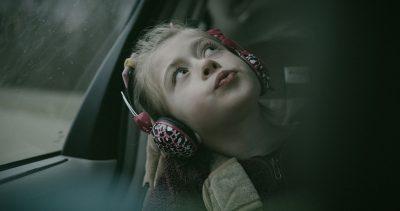Nearly 57 million Americans live with special needs, according to the National Organization on Disability. These people struggle with tasks that the majority of people do not worry about in their daily lives — anything from school and work to simply eating pose a constant challenge for mentally disabled people.

ReelAbilities Film Festival and the Boston Jewish Film Festival collaborated recently to screen two documentaries that highlight a typical day in the life of people with special needs. “The Unconditional” and “Me, My Mouth, and I” were streamed on the ReelAbilities website on Friday, followed by a live question and answer Skype conference with representatives involved in the projects.
Both “The Unconditional” and “Me, My Mouth, and I” feature people living with mental and physical disabilities, showcasing special needs through the lens of family, children and artists.
Maureen Finnerty, a member of the ReelAbilities advisory committee as well as an actress, artist and teacher, participated in the post-screening discussion, and said the documentaries drive an important narrative of individual expression and understanding.
“I think both films show you that communication doesn’t always have to be verbal,” Finnerty said during the discussion. “You get to know what someone is feeling or thinking … everybody has a voice.”
The first film screened, “The Unconditional,” is a 29-minute documentary directed by Dave Adams and released in 2018. The story follows the Krakowiak family, who have two undiagnosed special needs children. Through the film, Adams documents the struggles the family endures while tackling Colibe’s and Lleyton’s physical and mental disabilities. Although the children have no official diagnosis, they are both nonverbal and struggle with simple tasks like eating and walking, as the film shows.
By using raw, unedited clips of the Krakowiak daily life, the documentary appears more realistic and resonates with audiences, Adams said in an interview.
“Everything had to feel authentic and real, which I think comes across, and it was a very big part of our plan to not try to control anything, just let it all play out in front of us,” Adams said. “We didn’t want to start or stop anything. Everything that was on the film is how it actually happened in real life.”
Matt Cascella, the story producer and editor of “The Unconditional,” has over a decade of experience creating documentaries. He said the emotional element of the story contributed to the interesting and impactful perspective the film provided.
“It was hands down one of the most rewarding experiences for me, just because I thought the family was so human and genuine,” Cascella said in an interview. “It’s hard to come by, and it’s a difficult story to tell and open up about.”
The project took producers a year to film, Adams said. The team visited the Krakowiaks at their Ohio home about six times throughout the year to capture different moments, including the Special Olympics and doctor’s appointments, to get a variety of scenes.
Adam Soltis, a producer, sound recordist and assistant camera for “The Unconditional,” said the overall image of the unconventional life with disability displays a message of acceptance.
“This is how some, not all people, but some people with kids with disabilities live, and they’re normal people,” Soltis said in an interview. “It gave the viewer a look into what their life is like, and maybe it could open people’s minds and eyes to accepting that.”
In further exploration of such disabilities and their effects on individual human lives, ReelAbilities Film Festival streamed “Me, My Mouth, and I,” a 2018 documentary directed by Sophie Robinson. The film examines the life of Jess Thom, a young woman with Tourette’s Syndrome, characterized by complex phonic tics, uncontrolled sounds or movements patients make.
The film follows Thom, an artist, activist and performer, through her journey as she prepares for her role as Mouth in Beckett’s short play “Not I.” By being the first disabled actor in the play, Thom said she is setting a precedent for future special needs actors and destigmatizing issues that pervade the portrayal of people with disabilities in society and politics.
“As the first disabled artist to put this play on in front of a nationwide audience, I’ll also be asking you all to radically reconsider issues of disability, representation and social exclusion in the arts and in society in general,” Thom said at the beginning of the film.
Finnerty said Thom’s representation in the film can empower the disabled community. As a wheelchair-bound dancer, Finnerty said she faces hardships, but said Thom can be a role model for other disabled people to follow their dreams.
“I think watching the film showed me that [Thom] accepted her disability and she didn’t let society’s definition of disability or society’s belief in disabilities stop her from being who she was,” Finnerty said in the virtual question and answer session. “That’s what I try to do when I act and I dance.”
Adams said that working on this project reminded him of the importance of watching documentaries and what a viewer can retain from observing a life converse to their own.
“If you do see someone who’s struggling … put yourself in their shoes,” Adams said. “Essentially, we’re opening up the curtain on a life of a family that might be extremely different than yours, but they’re going to teach you a lot of lessons about patience and empathy and love.”

















































































































